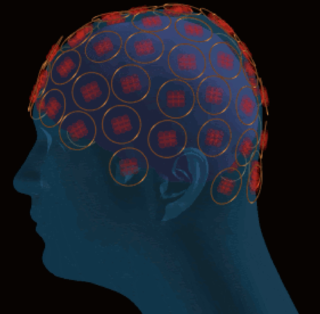Neuroscience
Kernel Launches Neuroscience as a Service (NaaS)
Brain-recording paradigm may shift neuroscience research to on-demand.
Posted May 7, 2020 Reviewed by Kaja Perina

In the midst of a global COVID-19 pandemic, entrepreneur Bryan Johnson quietly launched a new neurotechnology paradigm that may shift how neuroscience researchers conduct brain studies in the future.
Johnson is the Founder and CEO of Kernel, a brain-computer interface (BCI) company headquartered in Culver City, which is part of Los Angeles, California. On Tuesday, Kernel emerged from stealth mode and unveiled its Neuroscience as a Service (NaaS) platform to provide on-demand non-invasive brain recording capabilities for scientific research organizations.
Johnson is also the Co-Founder and General Partner of OS Fund, a venture capital company founded in 2014 that is focused on investing in artificial intelligence machine learning companies for genomics, therapeutics, diagnostics, advanced materials, and synthetic biology. A polymath and adventurer, Johnson is a pilot, author of two books for children (Code 7: Cracking the Code for an Epic Life and The Pronto Project), and outdoor enthusiast who has summited Mount Kilimanjaro.

"We are trying to do for the brain what large telescopes did for astronomy,” said Johnson. “To peer farther out into the universe you need bigger and bigger telescopes. But to peer farther into the brain, you need smaller and smaller technology.”
Kernel has developed two demonstrations of their brain-computer interface applications called Speller and Sound ID. Speller enables participants to spell words via brain signals by visually attending to letters on a screen. Kernel tested Speller on five participants over two days, where four of the participants performed the experiment twice. The average accuracy was 80.34 percent at an information transfer rate (ITR) of 55 bits per minute for the trial length. Sound ID infers what a person is listening to based on brain signal patterns. For speech, the algorithm can predict it within seconds.
Kernel Flux is based on Optically Pumped Magnetometers for Magnetoencephalography (OP-MEG). It detects the magnetic fields generated by collective neural brain activity by using a collection of alkali vapor sensors. A full-head-coverage system consists of 48 modules that provide 720 channels of magnetometer data that works without requiring a multilayer sealed-door magnetically shielded room. It weighs less than 1.6 kg for a fully populated headset and has a range of 1-200 Hz bandwidth.
Kernel Flow is a miniaturized time-domain near-infrared spectroscopy (TD-NIRS) system that can detect the hemodynamics of the cerebral cortex. Specifically, it provides tissue oxidization index, normalized tissue hemoglobin index, oxygenated hemoglobin, deoxygenated hemoglobin, total hemoglobin, bulk tissue optical properties and multichannel EEG as a complementary signal. Weighing less than 1.5 kg with a fully populated headset, it can sample at a rate of up to 500 Hz for optical, and 1 kHz for EEG.

Kernel’s solution may enable scientific research to be conducted in more natural environments and settings versus equipment rooms in laboratories. The concept of NaaS is somewhat analogous to the concept of Software as a service (SaaS)—decentralized cloud-based computing where a third-party provider hosts applications where customers access over the internet, thus enabling customers to focus on their domain expertise versus attempting to run complex data centers and technology stacks. In the case of NaaS, Kernel offers an alternative for research organizations without the complexities and costs of running room-sized equipment for measuring, recording and interpreting brain signals.
Kernel’s value proposition is to provide a scalable, easy-to-use, low-cost, brain signal acquisition hardware that supports natural environments and motion, along with a world-class full-stack neuroscience expertise.
Johnson understands the value of neuroscience to help the human condition. For a decade he experienced severe depression. He had a challenging childhood as his father had a drug addiction that lasted for 25 years, and a stepfather who showed signs of Alzheimer’s disease.
Johnson and his family are not alone. Neurological and neurodegenerative diseases affect nearly 100 million Americans, according to the Society for Neuroscience (SfN), a nonprofit of over 37,000 brain and nervous system scientists and physicians. Annually, mental disorders and neurological illnesses cost the United States over $760 billion per SfN.
Four years ago, Johnson committed $100 million of his own fortune to found Kernel. His vision was to accelerate cognitive evolution through the quantification of the human mind and brain via harnessing the power of artificial intelligence (AI). Originally the company was focused on a memory device, a neural prosthetic for enhancing human intelligence (HI), but soon pivoted towards the stimulation and measurement of electrical impulses from neurons firing.
"Computers were once room sized and now look where they are,” said Johnson. “Right now, the best devices to look at brain activity are room sized. We know how this story goes. Things get smaller and, once they do, new and amazing things start to happen.”
By leveraging the interdisciplinary domains of state-of-the-art AI machine learning, neuroscience, engineering, signal processing, and physics, Kernel has created an innovative miniaturized platform that may accelerate neuroscience research to help solve that which ails the human brain in the future.
Copyright © 2020 Cami Rosso All rights reserved.




